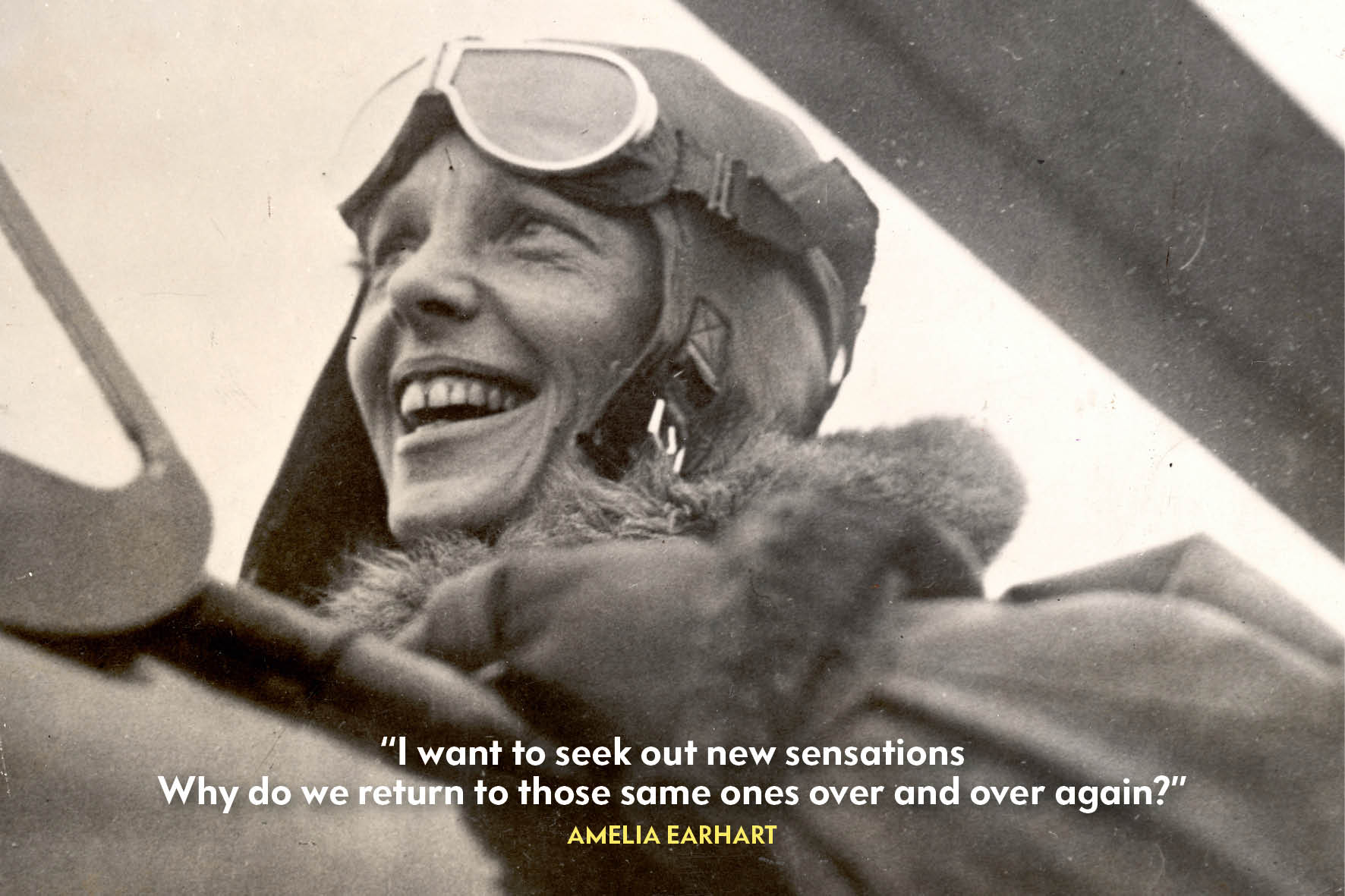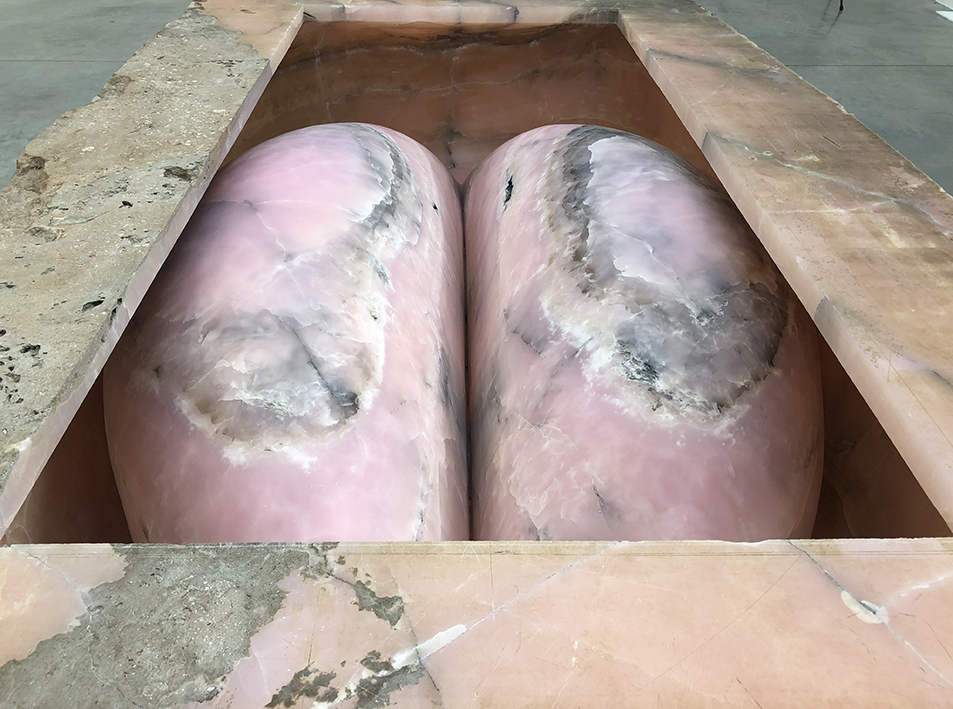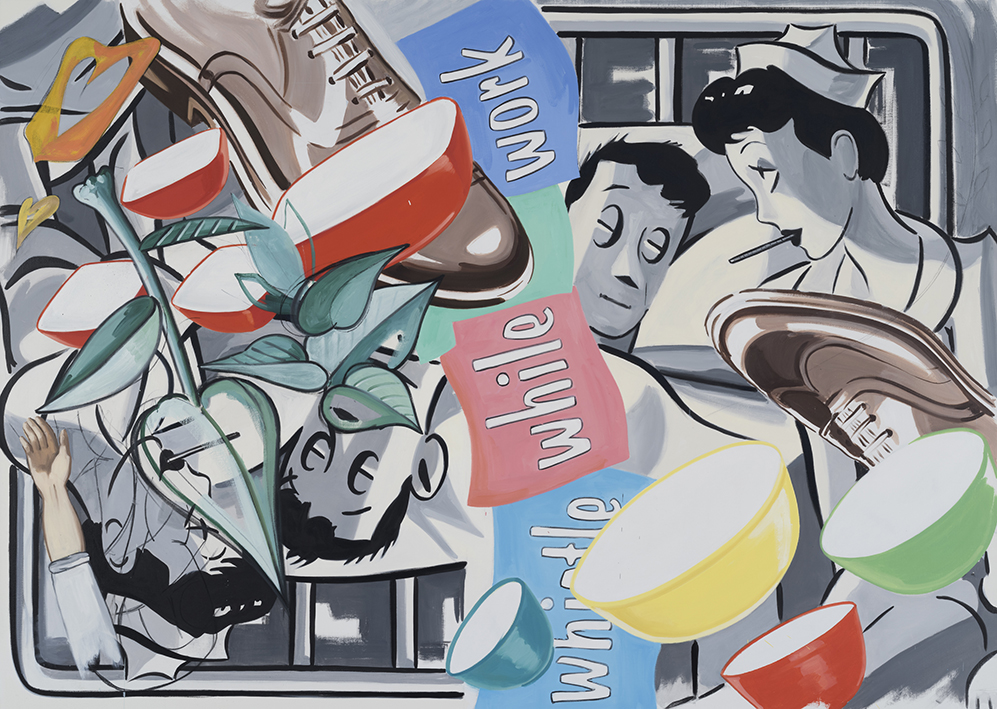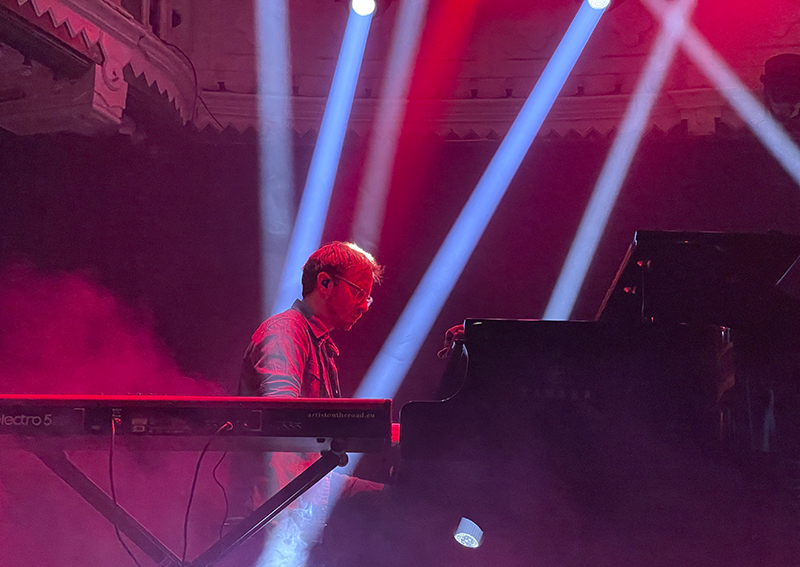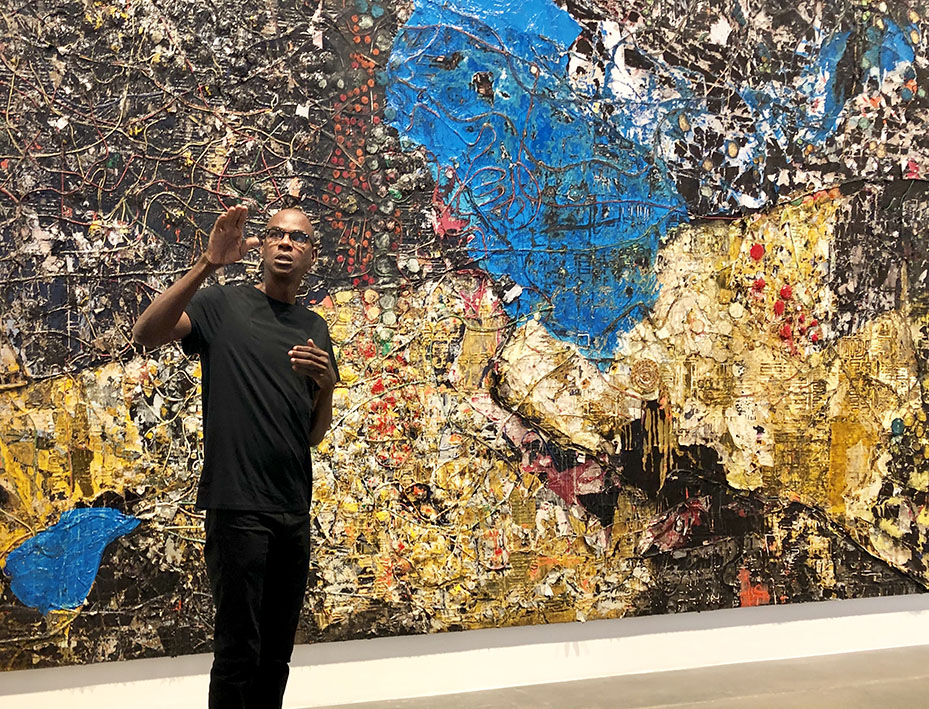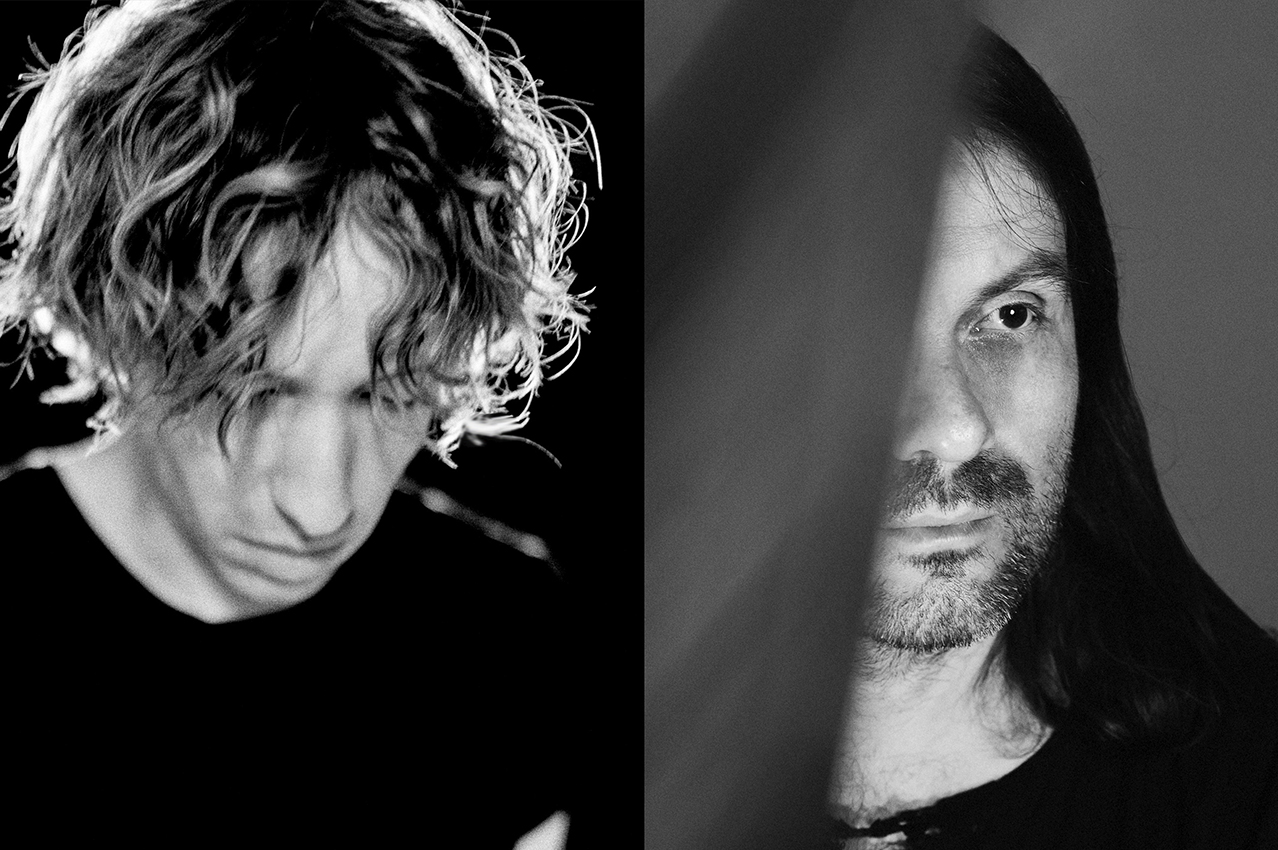 “I became very aware that the advancements in gender politics have still basically left Hollywood and the acting world untouched,” says Romola Garai on her first experience of Hollywood. Garai is one of Britain’s most talented actresses, who clearly engages and speaks about subjects such as gender politics and feminism.
Garai chooses roles, whether consciously or subconsciously, when she feels connected to the story or the character’s issue on a personal level. The part of Bel Rowley in the critically acclaimed TV Series ‘The Hour’, therefore, is made for her as the show not only discusses gender politics but also issues such as the position of women in the workplace.
The 28 year old actress who starred in ‘Atonement’, ‘I Capture the Castle’ and ‘Glorious 39’ plays an ambitious, young producer running a current affairs programme in ‘The Hour’. The show is set in the 1950s, a time when women started to enter the workplace and it was still James Brown’s “It’s a man’s world”. The office was an environment where men made disparaging remarks in public about women sometimes often with a sexist undertone.
200% met with Garai on a sunny morning at a café in West Kensington, London, and discussed with her from where her ‘healthy’ interest in political issues arises; how she draws experiences from her life for the characters she plays, the morality of acting, and the problem when actors get jobs when they haven’t had to audition.
200%: Are you currently following ‘The Hour’ on TV?
Romola Garai: Yes, I saw the first three episodes, but to be honest, I don’t really like sitting down in the evening watching a show in which I play a part. There is no way I can enjoy it. I do, at a later date, watch productions in which I’ve acted and assess my bits to see what I can improve, purely from a professional point of view. [laughs] I don’t like watching myself back because it’s me pretending to be someone else.
200%: Can you explain how you begin to imagine Bel from the pages of a script. Is portraying a character similar to putting together the pieces of a jigsaw?
Romola Garai: Yes. A common process used by actors is to read the whole script and extract every piece of information about the character you will portray. Then you extract further details of your character from their specific dialogue and action. Finally, you extract information from the points in which other people refer to your character. This process enables you to form a basic list of aspects, traits that define the person you will play. That’s always a really useful way to start. Abi Morgan [the writer of ‘The Hour’], had also already written the back story for the characters so we [the actors] didn’t have to invent those. This helped in imaging Bel as a character.
200%: Did your co-actors in ‘The Hour’ also provide direct input for your character?
Romola Garai: Well in this country [UK] actors are very wary of talking about the performances of their co-actors. If another actor said to me “I don’t think you’re doing that right”, I would be really offended. In the UK, when an actor makes a decision about the portrayal of their character, co-actors respond to that, rather than having a literal conversation about the decision taken. In France it’s different. Some friends, who have worked in French theatre, told me that the environment is much more collaborative as other actors do comment on your performance and it’s not considered rude.
200%: As an actress do you draw from experiences in your own life for the characters you play?
Romola Garai: Yes, you don’t have anything else on which to draw. I think there are only a few brilliant actors who can really enter into somebody else’s mindset without using any of their own experiences, but I’m not one of those actors. Most actors tend to draw on their own experiences and bring those experiences to their character and act with it.
Recently, whilst talking to a friend, who is also an actress, she said: “I feel so arrogant to assume that I can use the stories of my own life to connect to a character that has had experiences far beyond anything that I could ever have had”. I think the trouble is that when you’re intelligent enough to have that thought, then you struggle with the morality of acting. You see its pointlessness, its arrogance. Being intelligent in that way can stop you from wanting to act.
200%: Could you provide an example of where you struggled with the morality of acting?
Romola Garai: In the play ‘The Village Bike’, a story about disintegration, at the end my character becomes very desperate and sad. You have to use whatever you have from your own life in order to connect with that story. It’s clearly a kind of emotional prostitution; you’re selling your emotions and it feels wrong. In addition, they’re not only the details of your own life, but of your family and your community, and those are the things on which you trade.
200%: Does it feel it’s a sacrifice you have to make for acting?
Romola Garai: The way I try to cope with the dichotomy is by considering that, if you’re able to have that thought [the morality of acting], it probably means you are trying to do it responsibly, that’s my excuse. Basically I don’t think it is right. If there was a way around it I would find a way around it.
200%: Is acting for you a means to find out who you are as a person, and does it provide you with tools to have a better understanding of the world?
Romola Garai: I don’t think it provides you with tools to have a better understanding of the world. If that was the case the actors that I know would be happy, settled and fonts of wisdom, which they’re not.
I do think I tend to be given roles that teach me something. I don’t know that I’ve consciously selected roles in which I’m interested, or with which I am engaged; or, whether on a subconscious level, I’m looking for ways to solve problems in life. I do think if you listen to the stories that are being told they teach you things about yourself as there is a reason you have been chosen by the director. He has seen something in you. I would say, nine times out of ten, there is something in you that connects to the story or the character’s problem on a personal level. If you try and work out what that is, I think it can often teach you something about yourself or, at the very least, the way in which you are viewed by other people.
Being interviewed or auditioning can also teach you things about yourself. With an interview you have an opportunity to read your thoughts. When you are given a part, an explanation is provided as to why you were selected for the role and this enables you to assess what other people think about you and the way in which you come across.
200%: Do you enjoy or dislike auditions?
Romola Garai: I like them as you have the opportunity to be different characters. I especially like it when someone has not met you before as you can be a completely different version of yourself. Quite often the director is appalled, so horrified, that you’re just a mouthy, smoking girl [laughs] and they thought you were something completely different. I think it’s fun.
200%: Some actors find the auditioning process quite horrific and even humiliating.
Romola Garai: No I don’t at all. Actually there is a problem when actors get jobs when they haven’t had to audition; they’re often not right for the part. When an actor has so much power that he can elect the work that he wants to do, I believe, that’s not the way it should be. It should be the director choosing the person that’s correct for the part. Genuinely, I would never want to just choose the parts that I want to do because there would be a much larger chance that you would be shit [laughs].
“I became very aware that the advancements in gender politics have still basically left Hollywood and the acting world untouched,” says Romola Garai on her first experience of Hollywood. Garai is one of Britain’s most talented actresses, who clearly engages and speaks about subjects such as gender politics and feminism.
Garai chooses roles, whether consciously or subconsciously, when she feels connected to the story or the character’s issue on a personal level. The part of Bel Rowley in the critically acclaimed TV Series ‘The Hour’, therefore, is made for her as the show not only discusses gender politics but also issues such as the position of women in the workplace.
The 28 year old actress who starred in ‘Atonement’, ‘I Capture the Castle’ and ‘Glorious 39’ plays an ambitious, young producer running a current affairs programme in ‘The Hour’. The show is set in the 1950s, a time when women started to enter the workplace and it was still James Brown’s “It’s a man’s world”. The office was an environment where men made disparaging remarks in public about women sometimes often with a sexist undertone.
200% met with Garai on a sunny morning at a café in West Kensington, London, and discussed with her from where her ‘healthy’ interest in political issues arises; how she draws experiences from her life for the characters she plays, the morality of acting, and the problem when actors get jobs when they haven’t had to audition.
200%: Are you currently following ‘The Hour’ on TV?
Romola Garai: Yes, I saw the first three episodes, but to be honest, I don’t really like sitting down in the evening watching a show in which I play a part. There is no way I can enjoy it. I do, at a later date, watch productions in which I’ve acted and assess my bits to see what I can improve, purely from a professional point of view. [laughs] I don’t like watching myself back because it’s me pretending to be someone else.
200%: Can you explain how you begin to imagine Bel from the pages of a script. Is portraying a character similar to putting together the pieces of a jigsaw?
Romola Garai: Yes. A common process used by actors is to read the whole script and extract every piece of information about the character you will portray. Then you extract further details of your character from their specific dialogue and action. Finally, you extract information from the points in which other people refer to your character. This process enables you to form a basic list of aspects, traits that define the person you will play. That’s always a really useful way to start. Abi Morgan [the writer of ‘The Hour’], had also already written the back story for the characters so we [the actors] didn’t have to invent those. This helped in imaging Bel as a character.
200%: Did your co-actors in ‘The Hour’ also provide direct input for your character?
Romola Garai: Well in this country [UK] actors are very wary of talking about the performances of their co-actors. If another actor said to me “I don’t think you’re doing that right”, I would be really offended. In the UK, when an actor makes a decision about the portrayal of their character, co-actors respond to that, rather than having a literal conversation about the decision taken. In France it’s different. Some friends, who have worked in French theatre, told me that the environment is much more collaborative as other actors do comment on your performance and it’s not considered rude.
200%: As an actress do you draw from experiences in your own life for the characters you play?
Romola Garai: Yes, you don’t have anything else on which to draw. I think there are only a few brilliant actors who can really enter into somebody else’s mindset without using any of their own experiences, but I’m not one of those actors. Most actors tend to draw on their own experiences and bring those experiences to their character and act with it.
Recently, whilst talking to a friend, who is also an actress, she said: “I feel so arrogant to assume that I can use the stories of my own life to connect to a character that has had experiences far beyond anything that I could ever have had”. I think the trouble is that when you’re intelligent enough to have that thought, then you struggle with the morality of acting. You see its pointlessness, its arrogance. Being intelligent in that way can stop you from wanting to act.
200%: Could you provide an example of where you struggled with the morality of acting?
Romola Garai: In the play ‘The Village Bike’, a story about disintegration, at the end my character becomes very desperate and sad. You have to use whatever you have from your own life in order to connect with that story. It’s clearly a kind of emotional prostitution; you’re selling your emotions and it feels wrong. In addition, they’re not only the details of your own life, but of your family and your community, and those are the things on which you trade.
200%: Does it feel it’s a sacrifice you have to make for acting?
Romola Garai: The way I try to cope with the dichotomy is by considering that, if you’re able to have that thought [the morality of acting], it probably means you are trying to do it responsibly, that’s my excuse. Basically I don’t think it is right. If there was a way around it I would find a way around it.
200%: Is acting for you a means to find out who you are as a person, and does it provide you with tools to have a better understanding of the world?
Romola Garai: I don’t think it provides you with tools to have a better understanding of the world. If that was the case the actors that I know would be happy, settled and fonts of wisdom, which they’re not.
I do think I tend to be given roles that teach me something. I don’t know that I’ve consciously selected roles in which I’m interested, or with which I am engaged; or, whether on a subconscious level, I’m looking for ways to solve problems in life. I do think if you listen to the stories that are being told they teach you things about yourself as there is a reason you have been chosen by the director. He has seen something in you. I would say, nine times out of ten, there is something in you that connects to the story or the character’s problem on a personal level. If you try and work out what that is, I think it can often teach you something about yourself or, at the very least, the way in which you are viewed by other people.
Being interviewed or auditioning can also teach you things about yourself. With an interview you have an opportunity to read your thoughts. When you are given a part, an explanation is provided as to why you were selected for the role and this enables you to assess what other people think about you and the way in which you come across.
200%: Do you enjoy or dislike auditions?
Romola Garai: I like them as you have the opportunity to be different characters. I especially like it when someone has not met you before as you can be a completely different version of yourself. Quite often the director is appalled, so horrified, that you’re just a mouthy, smoking girl [laughs] and they thought you were something completely different. I think it’s fun.
200%: Some actors find the auditioning process quite horrific and even humiliating.
Romola Garai: No I don’t at all. Actually there is a problem when actors get jobs when they haven’t had to audition; they’re often not right for the part. When an actor has so much power that he can elect the work that he wants to do, I believe, that’s not the way it should be. It should be the director choosing the person that’s correct for the part. Genuinely, I would never want to just choose the parts that I want to do because there would be a much larger chance that you would be shit [laughs].
 200%: In the fourth episode of ‘The Hour’ there is a scene where the Prime Minister’s press advisor comments about Bel in front of her superior: “I didn’t think she’d last as long as she has, Clarence. Douglas said you thought a lady would be easy to steer. You were obviously wrong.”
It’s a disparaging remark and, in the following scene, Bel confronts Clarence as to whether he made the remark, to which he finally admits. Do you think, in 2011, that there is still an element of 1950s in terms of how women are seen / treated by men in the workplace?
Romola Garai: There are still problems for women in the workplace but they are different to that of the 1950s. A lot of problems faced by women now are about an internal lack of self or achievement and failure of ambition. I believe there is discrimination nowadays, but not the literal discrimination as witnessed in ‘The Hour’ with men saying: “she can’t do this as she is a woman”.
200%: The scene also appeals to you because of your interest in gender politics. From where does the interest arise?
Romola Garai: After I had been acting for two or three years, I became involved in some Hollywood productions that, for me, was a negative experience. I became very aware that the advancements in gender politics have still basically left Hollywood and the acting world untouched. It’s not a good place for women in the workplace. We still haven’t had any test cases where actresses have sued studios for bullying them about their bodies: that has not happened and it should have happened by now.
Also, I feel that when you’re involved in representing women you are telling them how they should be to a certain extent or, at least, telling what’s the truth about themselves. You have a responsibility to tell them something that is truthful and not diminishing.
I understand I work in ‘drama’ so it has to be exciting but I would never want to be part of anything that I felt was a destructive lie, that I thought was going to perpetrate an idea that was simply untrue, or was going to make women feel bad about themselves.
200%: You play Sylvie in the film ‘One Day’ which is a character quite opposite of yourself, isn’t she?
Romola Garai: Yes, she is somebody who probably has quite a practical outlook on life from the start and makes a practical choice about her life; she makes a decision to go in another way with another man and that’s quite different from me. I think I sort of have constantly very high ideals and aspirations that are being crushed [laughs]. I’m not a practical person at all. It’s fun playing characters like that because you have an opportunity to imagine what it would be like to be the opposite of yourself.
200%: Your character Sylvie also has comical aspects – this is something you have not done before.
Romola Garai: Yes, I have never done anything that even could slightly be described as funny except maybe ‘The Village Bike’. If I could have done more comedy I would have liked that. I think the trouble is that if you do interviews where you talk a lot about feminism, people automatically assume that you’re humourless and that might be a reason why nobody wants to put you in a comedy. [laughs]
Interview written and conducted by Thierry Somers (08/11)
Photo credit: Giles Keyte © 2011 Focus Features LLC and Random House, Inc.
Romola Garai and Ben Whishaw in ‘The Hour’ © BBC
200%: In the fourth episode of ‘The Hour’ there is a scene where the Prime Minister’s press advisor comments about Bel in front of her superior: “I didn’t think she’d last as long as she has, Clarence. Douglas said you thought a lady would be easy to steer. You were obviously wrong.”
It’s a disparaging remark and, in the following scene, Bel confronts Clarence as to whether he made the remark, to which he finally admits. Do you think, in 2011, that there is still an element of 1950s in terms of how women are seen / treated by men in the workplace?
Romola Garai: There are still problems for women in the workplace but they are different to that of the 1950s. A lot of problems faced by women now are about an internal lack of self or achievement and failure of ambition. I believe there is discrimination nowadays, but not the literal discrimination as witnessed in ‘The Hour’ with men saying: “she can’t do this as she is a woman”.
200%: The scene also appeals to you because of your interest in gender politics. From where does the interest arise?
Romola Garai: After I had been acting for two or three years, I became involved in some Hollywood productions that, for me, was a negative experience. I became very aware that the advancements in gender politics have still basically left Hollywood and the acting world untouched. It’s not a good place for women in the workplace. We still haven’t had any test cases where actresses have sued studios for bullying them about their bodies: that has not happened and it should have happened by now.
Also, I feel that when you’re involved in representing women you are telling them how they should be to a certain extent or, at least, telling what’s the truth about themselves. You have a responsibility to tell them something that is truthful and not diminishing.
I understand I work in ‘drama’ so it has to be exciting but I would never want to be part of anything that I felt was a destructive lie, that I thought was going to perpetrate an idea that was simply untrue, or was going to make women feel bad about themselves.
200%: You play Sylvie in the film ‘One Day’ which is a character quite opposite of yourself, isn’t she?
Romola Garai: Yes, she is somebody who probably has quite a practical outlook on life from the start and makes a practical choice about her life; she makes a decision to go in another way with another man and that’s quite different from me. I think I sort of have constantly very high ideals and aspirations that are being crushed [laughs]. I’m not a practical person at all. It’s fun playing characters like that because you have an opportunity to imagine what it would be like to be the opposite of yourself.
200%: Your character Sylvie also has comical aspects – this is something you have not done before.
Romola Garai: Yes, I have never done anything that even could slightly be described as funny except maybe ‘The Village Bike’. If I could have done more comedy I would have liked that. I think the trouble is that if you do interviews where you talk a lot about feminism, people automatically assume that you’re humourless and that might be a reason why nobody wants to put you in a comedy. [laughs]
Interview written and conducted by Thierry Somers (08/11)
Photo credit: Giles Keyte © 2011 Focus Features LLC and Random House, Inc.
Romola Garai and Ben Whishaw in ‘The Hour’ © BBC


